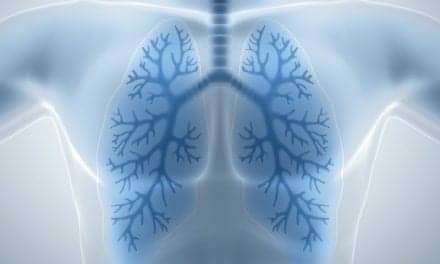11/03/06
Researchers have found a highly unusual distribution of two proteins in the lungs and airways of people with cystic fibrosis, a discovery that could be a step in determining how the disease progresses. The proteins, first uncovered as a result of the human genome project, are thought to play a role in the body’s immune system.
The discovery is preliminary, but intriguing: Finding out more about the proteins could help sort out the immune system’s role in cystic fibrosis, a genetic disease that attacks the lungs and other organs and dramatically shortens life expectancy.
The study “Comparative expression of SPLUNC1, SPLUNC2 and LPLUNC1 in normal and diseased lungs,” was carried out by Lynne Bingle of the University of Sheffield School of Clinical Dentistry, Sheffield, United Kingdom, and Colin Bingle, University of Sheffield Medical School, Sheffield. They will present the study at a meeting of The American Physiological Society, “Physiological Genomics and Proteomics of Lung Disease,” on November 3. The meeting takes place November 2-5 in Fort Lauderdale.
“Our results show unique expression domains for (the proteins) within the airways and suggest that alterations in expression of these putative innate immune molecules may be associated with lung disease,” the authors wrote.
More information can be found at http://www.newswise.com/articles/view/524548/.








